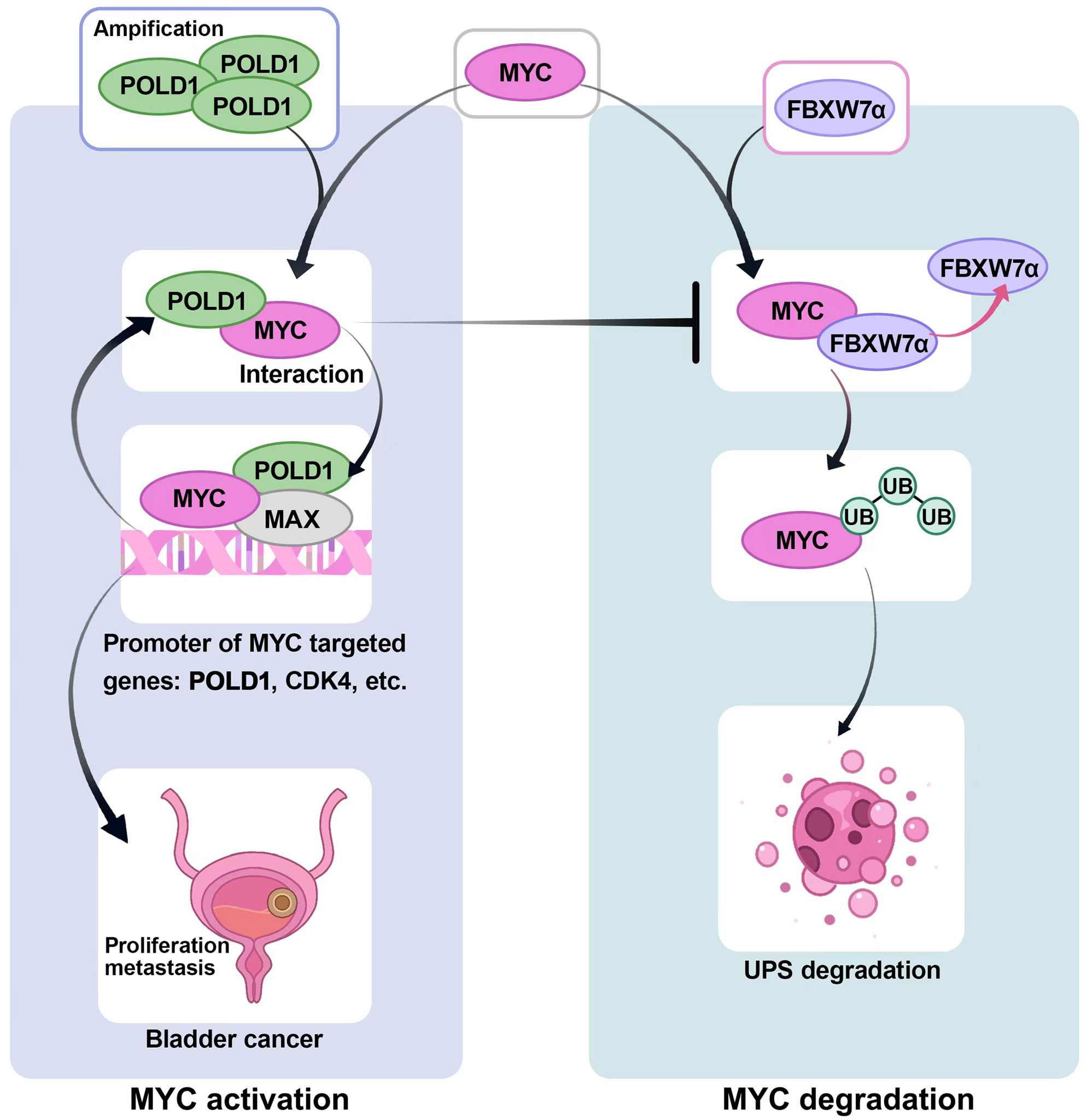DNA polymerase POLD1 promotes proliferation and metastasis of bladder cancer by stabilizing MYC
Published in Cancer
Continued with our previous study [1], we discovered that DNA polymerase (POLD1) pedigree mutations might be a risk factor for bladder cancer (BLCA) and that patients with POLD1G178R mutations tended to have higher tumor mutation burden (TMB), immune cell invasion, and longer survival times than patients with POLD1 wild-type BLCA.
To date, most studies on the DNA polymerase, POLD1, have focused on the effect of POLD1 inactivation mutations in tumors. However, the implications of high POLD1 expression in tumorigenesis remains elusive. Here, we determine that POLD1 has a procarcinogenic role in BLCA and is associated with its malignancy and prognosis.

In this study, we further explored the molecular mechanism of POLD1 in BLCA. we identified a mechanism by which POLD1 regulates the proliferation and metastasis of BLCA mediated by the stabilization of MYC. Specifically, as shown in Figure above, POLD1 was upregulated due to amplification or MYC transcriptional activation and competed with FBXW7α to bind MYC, leading to weakened MYC ubiquitination, preventing FBXW7α from binding MYC, and finally stabilizing MYC. On the other hand, POLD1 is the transcriptional target of MYC and can form a complex with MYC to participate in the transcriptional regulation of MYC, thus promoting the transcriptional activity of MYC.
Finally, a POLD1-MYC positive feedback loop is formed, which accelerates the deterioration of BLCA. Overall, our study identifies POLD1 as a promotor of BCLA via a MYC driven mechanism and suggests its potential as biomarker for BLCA.
Reference
[1] Wang Y, Ju L, Guo Z, Qian K, Chen H, Zhang Y, Xiao Y, Wang X. Pedigree analysis of a POLD1 germline mutation in urothelial carcinoma shows a close association between different mutation burdens and overall survival. Cell Mol Immunol. 2021, 18(3):767-769. doi: 10.1038/s41423-020-0425-8.
Follow the Topic
-
Nature Communications

An open access, multidisciplinary journal dedicated to publishing high-quality research in all areas of the biological, health, physical, chemical and Earth sciences.
Related Collections
With Collections, you can get published faster and increase your visibility.
Women's Health
Publishing Model: Hybrid
Deadline: Ongoing
Advances in neurodegenerative diseases
Publishing Model: Hybrid
Deadline: Mar 24, 2026



Please sign in or register for FREE
If you are a registered user on Research Communities by Springer Nature, please sign in